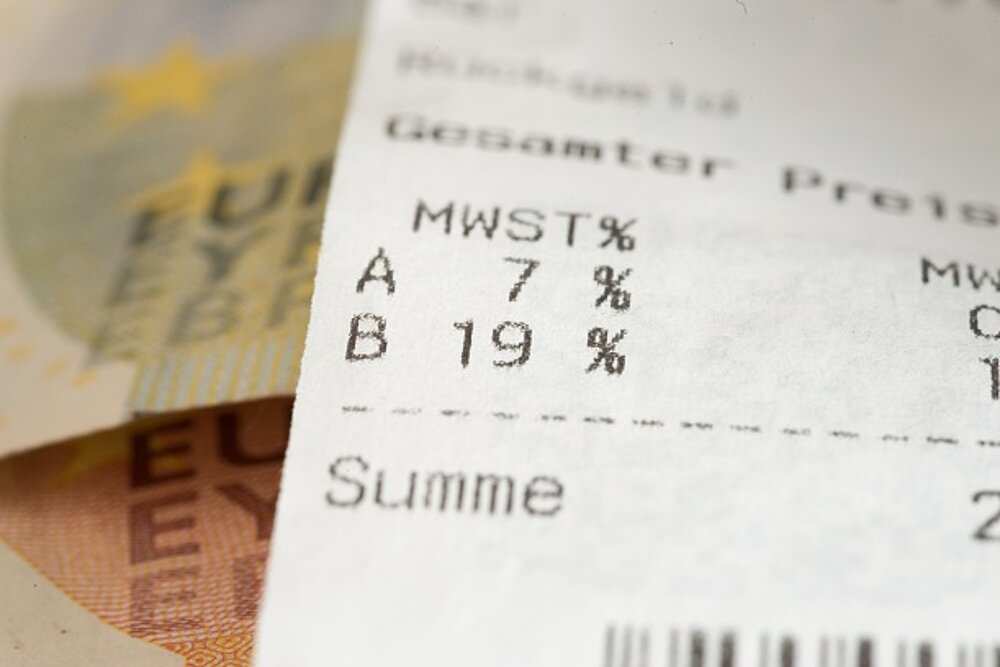Find out today what the legal world will be talking about tomorrow.

What was decided with the new economic stimulus package?
Among other measures, the VAT rate will be lowered from 19 % to 16 % and the reduced rate from 7 % to 5 % for the period from July 1 to December 31, 2020.
Why was the reduction in value-added tax decided in the economic stimulus package?
The objective is to strengthen domestic consumption. Lower prices are supposed to create an incentive to purchase consumer goods of all kinds. The announcement shortly before introduction is intended to avoid a wait-and-see approach to purchases and to offer a reason to act quickly since the measure is limited until December 31, 2020. Consumers will thus be able to save some 20 billion euros, provided that prices are in fact reduced in line with the lower VAT rate. Retailers are, however, not obligated to do so. It will therefore also be legally possible to raise prices and benefit from a higher profit margin after the difficult economic phase, irrespective of customer acceptance.
What challenges do the economic stimulus package and the reduction in value-added tax pose for companies?
The short-term economic stimulus package failed to take into account the considerable additional effort for companies in implementing it, which will be required for a period of only 6 months.
Supermarkets, for instance, are faced with the question of whether to relabel tens of thousands of products – only to revert to current prices in just 6 months – or whether to reduce the total price at the checkout in the period from July 1 to December 31, 2020. Both is legally possible, but it is unclear whether consumers will tolerate a reduction at the checkout or – possibly only subconsciously – select supermarkets that are displaying the lower prices on their shelves. In principle, there is no obligation to change the price labels at all.
Restaurants, among others, are facing particular challenges: Until June 30, 2020, food consumed in restaurants will be subject to a VAT rate of 19 %, while take-out food will be subject to a VAT rate of 7 %. From July 1, 2020 a reduced VAT rate of 5 % will apply uniformly to all services, from January 1, 2021 to June 30, 2021, a reduced VAT rate of 7 %, and then from July 1, 2021 again the general VAT rate of 19 % for food consumed in restaurants and 7 % for take-out.
Businesses that have already recorded order acknowledgments or down payments at the previous tax rate of 19 %, but are now deliver between July 1 and December 31, 2020, are faced with the question of how to handle this situation specifically. And may invoices issued prior to July 1, 2020 already show the lower tax rate if performance falls within the second half of the year?
Note: Due to the short-term implementation, no decrees and instructions of the tax authorities have been issued yet. It is expected, however, that the questions of differentiation will be guided by the most recent fundamental change in the tax rate on January 1, 2007 Federal Ministry of Finance, August 11, 2006 - IV A 5 - S 7210 - 23/06 Federal Tax Gazette 2006 I p. 477.
What exactly does the reduction in value-added tax mean?
In general, the following applies: For sales in the period
- until June 30, 2020 standard tax rate 19 %; reduced tax rate 7 %
- from July 1, 2020 to December 31, 2020 standard tax rate 16 %, reduced tax rate 5 %
- from January 1, 2021 standard tax rate 19 %, reduced tax rate 7 %
What are the decisive factors in applying the correct tax rate to sales?
The accrual of VAT and the correct application of the tax rate are solely governed by when the service was performed. The receipt of down payments or advance payments is irrelevant for the final accrual of VAT, Section 27(1) VAT Act. Advance payments therefore do not guarantee a tax rate. In detail:
- Deliveries – including deliveries of work – are generally deemed to have been effected when the recipient has acquired the right to dispose of the goods; once the goods are transported or sent, the delivery is deemed to have been effected when the transport or dispatch begins (Section 13.1(2) VAT Application Decree).
- Other services (including work services) are deemed to have been performed at the time of their completion. In the case of continuous services of limited duration, the service is deemed completed at the end of the service section, if there are no partial services involved.
- VAT for an intra-Community acquisition is incurred when the invoice is issued, at the latest at the end of the month following the acquisition (Section 13(1)(6) VAT Act).
Example: N orders and pays a lawnmower robot for a total of EUR 2,320 (EUR 2,000 plus 16 % VAT) on August 20, 2020. Delivery is to take place within 10 working days. Actual delivery, however, is not made until January 2, 2021. The service is only performed in January 2021 and will be subject to the standard tax rate of 19 %, with subsequent taxation at a rate of 3 %.
May invoices issued prior to July 1, 2020 already show the lower tax rate?
Businesses may also issue invoices for services even prior to the occurrence of the respective tax rate change at the tax rate applicable at the time the service is performed. This means that goods ordered now with deliveries in the period from July 1 to December 31, 2020 may already be invoiced at 16 % VAT.
How to handle the issue of down payments?
Down payments are always taxable at the time of receipt (Section 13.1(3) VAT Application Decree). Performance of the service is also decisive, however, for the correct tax rate. Example: A down payment made prior to July 1, 2020 was taxed at 19 % (or 7 %). The service was performed in the period between July 1 and December 31, 2020. VAT for the services will therefore have to be reduced by 3 %.
If down payments have been taxed at 16 % or 5 %, but the service is not carried out until after December 31, 2020, the services are to be taxed at an additional 3 %.
Crediting or subsequent taxation of down payments is to be shown in the advance tax return of the relevant period in which the service or partial service to which the down payment refers is performed. If businesses are taxing their business transactions according to the remuneration received, the credit or subsequent taxation is to be shown in the advance tax return period in which the remaining remuneration is received.
If businesses listed the VAT rate of 16 % or 5 % in the invoice for down payments received between July 1 and December 31, 2020, according to the previous practice, the down payment invoice is not to be corrected for services rendered after January 1, 2021 if a final invoice is issued for the entire service at the tax rate of 19 % that is applicable from January 1, 2021 – it can be assumed that this practice from 2007 will be applied again today. Alternatively, businesses may correct their invoice for the down payments received at the different tax rate. In this case, the correction is made for the advance tax return period in which the tax statement is corrected. The regulations apply not only to businesses making deliveries or performing services, but also to recipients’ input tax deductions.
What about partial and continuous services?
- Partial services (such as the leasing out of commercial premises) require a service that is divisible from an economic point of view that is not owed and effected as a whole but in parts. A service is owed in parts if the remuneration for certain parts is agreed separately (Section 13(1)(1)(a) sentence 3 VAT Act). Where partial services are provided that are performed in the period between July 1 and December 31, 2020, the tax rate of 16 % or 5 % applies. After and before this period, the tax rate of 19 % and 7 % applies.
- Providing admission tickets entitling the holder to attend several sports events within a certain period of time, however, is always considered a continuous service (the same applies to annual tickets and subscriptions), which is performed upon expiry of the entitlement period. The service is therefore deemed to have been performed at the end of the respective performance period – typically at the end of a sports season. This means that if the season of the Bundesliga ends on June 27, 2020, the annual season ticket service is deemed to have been performed prior to July 1, 2020, and the tax rate of 19 % applies.
What are the effects of VAT reduction on construction work?
Construction work is only considered to have been carried out upon acceptance. If uniform construction work is carried out in the period from July 1, 2020 to December 31, 2020, the entire work is subject to the standard tax rate of 16 %. To date, tax authorities have not criticized the fact that a corresponding agreement has been made before the change in the tax rate entered into force. Prior to January 1, 2021, the possibility of agreeing and performing partial construction work should therefore be examined.
What are the effects of VAT reduction on exchanges?
An exchange represents a cancelation together with a new acquisition. Therefore, the tax rate applicable to the replacement item is the tax rate applicable at the time of delivery.
What is the impact of VAT reduction on the necessity for correct invoicing?
Some background information on the necessity of correct invoicing: Where business are issuing an invoice still at the old tax rate of 19 % (or 7 %), but are providing the service between July 1 and December 31, 2020, they have overstated VAT separately (incorrectly shown VAT, Section 14c(1) VAT Act). While this overstated VAT amount is owed by the business, it cannot be deducted as input tax at an additional rate of 3 % by a service recipient who is in principle entitled to deduct input tax.
The accrual of VAT and the correct application of the tax rate are solely governed by when the service was performed. The receipt of down payments or advance payments is also irrelevant for the final accrual of VAT, Section 27(1) VAT Act.
Where can I find additional information and advice?
Take advantage of our expertise. We are at your disposal at any time and will gladly advise you at short notice. A brief phone call or an email will be sufficient to contact us.
Important information on the economic stimulus package and the measures it contains can be found here.
Authors





